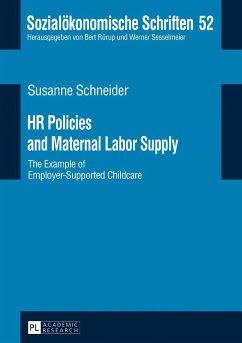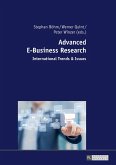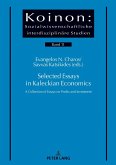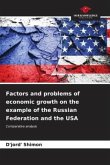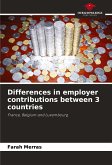The author asks how far the extension of employer-supported childcare serves as a driver for higher maternal labor supply. She addresses this question by categorizing employer-supported childcare as an efficiency wage introduced by the employer to increase the working volume of mothers. Applying various impact evaluation techniques in an econometric analysis, the author concludes that the availability of employer-supported childcare has a positive impact on the length and working volume of mothers who return back to work after giving birth. Furthermore, the usage of employer-supported childcare by mothers with pre-school age children influences the amount of agreed and actual working hours positively.
Bitte wählen Sie Ihr Anliegen aus.
Rechnungen
Retourenschein anfordern
Bestellstatus
Storno

